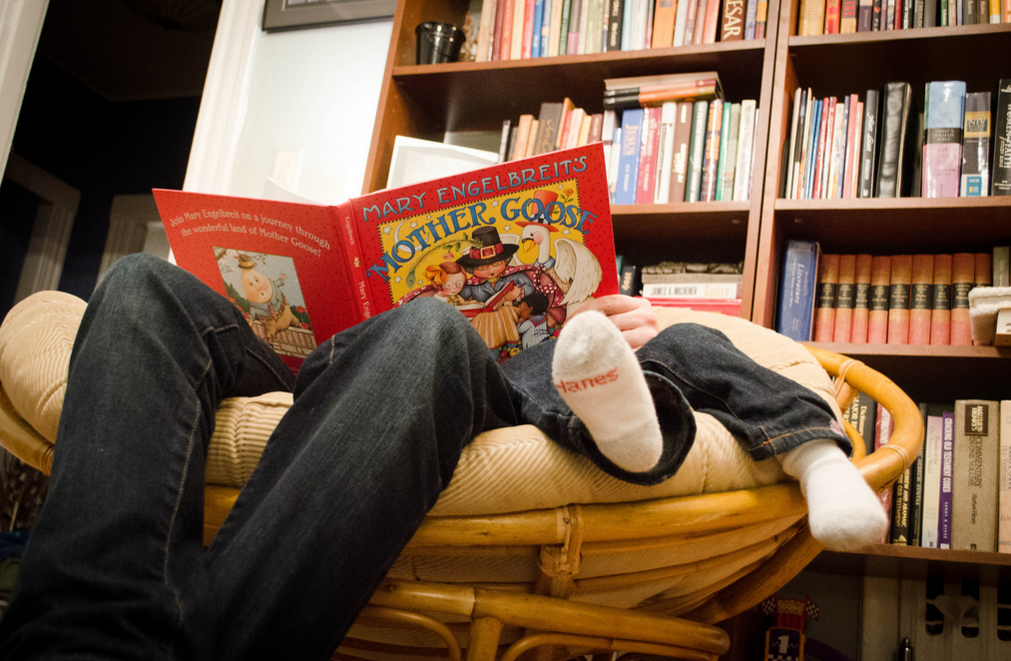The Importance of Libraries

By:
A cartoon by Chris OBrion about the many benefits of libraries is going viral on the Facebook page for Library Journal, a publication for the library community. The image, which has been shared more than 450,000 times, shows that libraries are still a public good that help a broad range of people, despite the argument that they're less valuable thanks to widespread Internet access and burdensome due to building maintenance costs.
OBrion's cartoon depicts a person outside a library asking why we even need libraries anymore. The cartoon reveals that there are several people inside the library using its services for productive reasons. An unemployed man is using the library's Internet connection to look for work, a family is renting movies and books to save money, a librarian is helping a senior citizen do research, a group of teens are at an after-school program rather than out causing trouble, and kids are signing up for a summer reading program.
RELATED: Here's Why It's so Important to Unplug
The cartoon shows that there are many good reasons that people today would still benefit from going to the library and that it can enrich lives in countless ways. Libraries can not only help people find jobs, but also allow them to spend their money more wisely and educate young people.
Many responded well to the cartoon on Facebook and noted that they still love visiting their local libraries:
 Library Journal Facebook page - facebook.com
Library Journal Facebook page - facebook.com
RELATED: Are Our Cell Phones Slowly Killing Us?
Though they still serve a valuable purpose, libraries have been in a lot of trouble in recent years. Across the nation, libraries have faced shutdowns, cuts and changes to hours, and big layoffs.
The rise of the eReader.
While some have argued that the rise in tablets and eReaders has eliminated the need for a place to get books, others have pointed out that some libraries provide eReaders to those who can't afford them (if that is the way they choose to consume their literature). Even with the increase in eReading, only 4 percent of readers are "eBook only," according to a 2014 survey from the Pew Research Center.
 Flickr/Kelly Sikkema - flickr.com
Flickr/Kelly Sikkema - flickr.com
RELATED: Here's Exactly Why College Textbooks Are So Expensive
But are eReaders better?
Despite many bookstore closures over the years and the death of Borders, research has also shown that people who read physical books may retain information from reading materials better than those who stick to eReaders. Stavanger University's Anne Mangen led a study on the matter last year and found that people who read from a Kindle were "significantly" worse than paperback readers at remembering the timeline of events in a story.
Mangen told the Guardian in 2014 that physical books may give readers a "tactile sense of progress" as well.
"When you read on paper you can sense with your fingers a pile of pages on the left growing, and shrinking on the right. You have the tactile sense of progress, in addition to the visual ... [The differences for Kindle readers] might have something to do with the fact that the fixity of a text on paper, and this very gradual unfolding of paper as you progress through a story, is some kind of sensory offload, supporting the visual sense of progress when you're reading. Perhaps this somehow aids the reader, providing more fixity and solidity to the reader's sense of unfolding and progress of the text, and hence the story."
